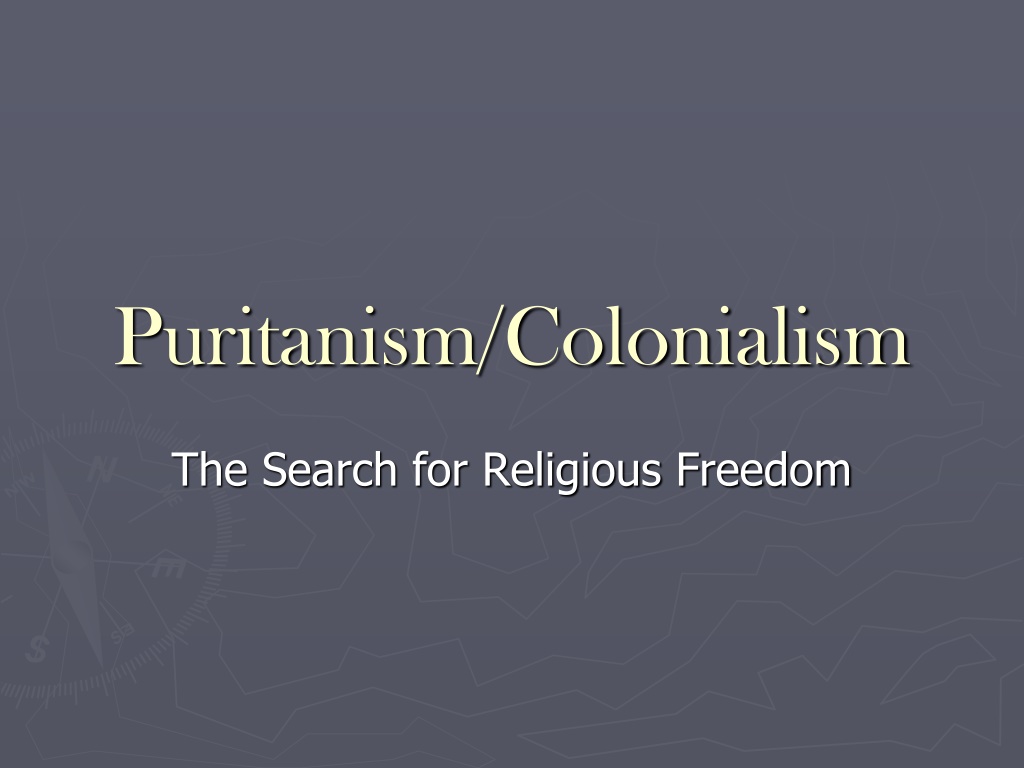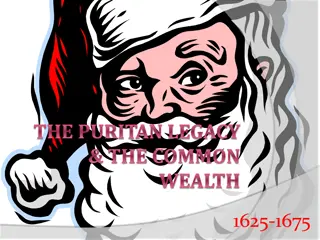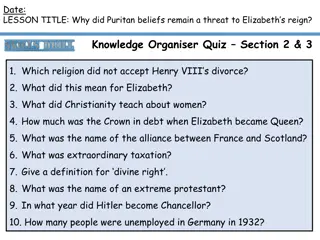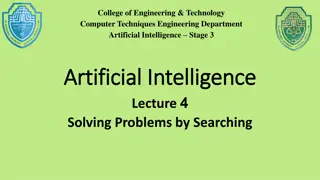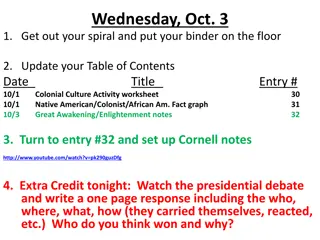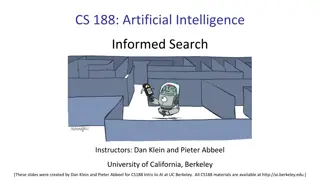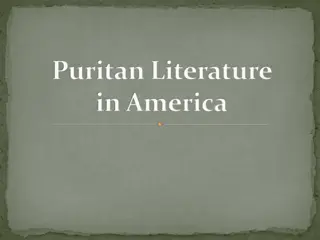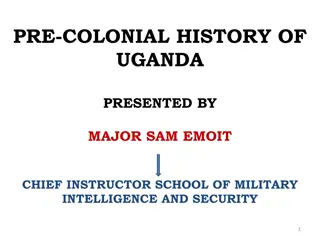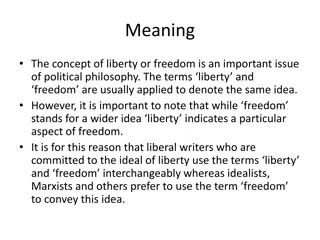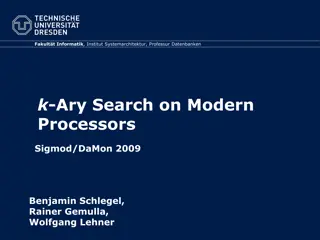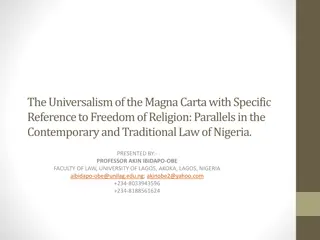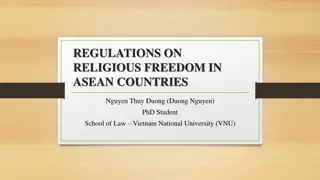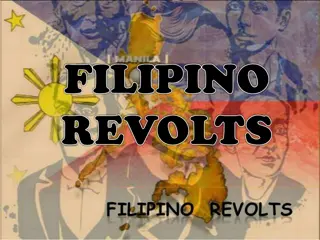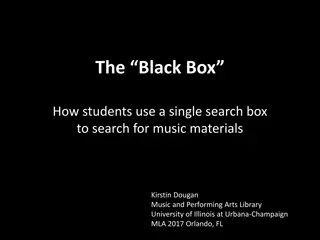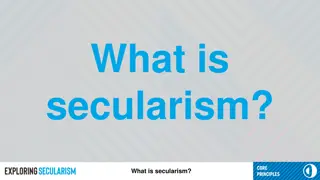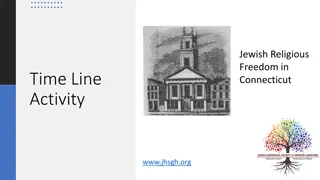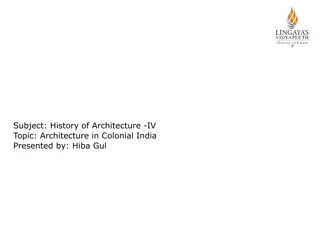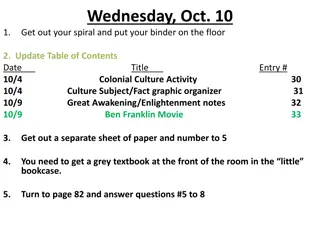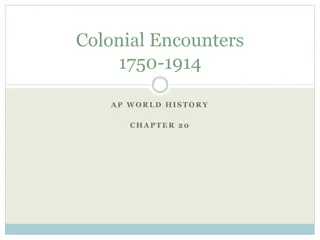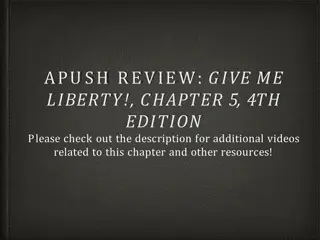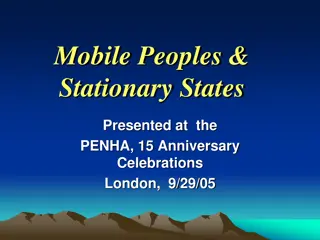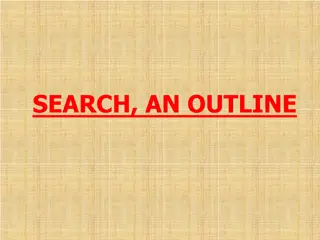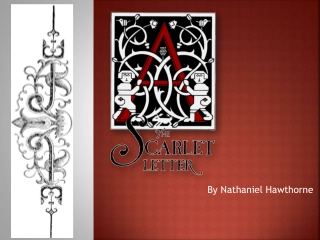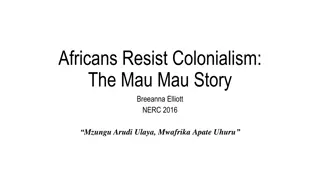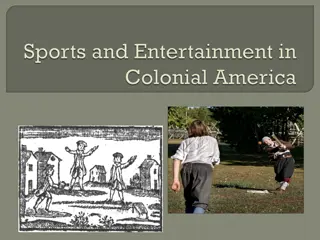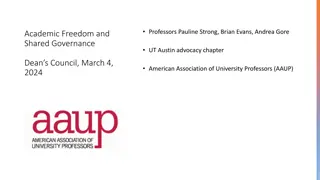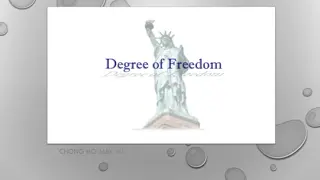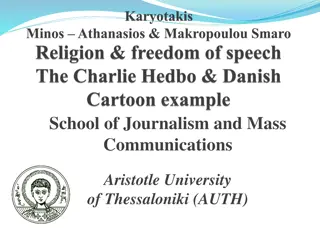The Puritan Search for Religious Freedom in Colonial Times
Puritans and Pilgrims sought religious freedom in the New World to escape persecution in Europe. Embracing Calvinism, they emphasized the literal interpretation of the Bible and the doctrine of total depravity. This period marked a quest for social order and spiritual certainty, shaping early American society.
Download Presentation

Please find below an Image/Link to download the presentation.
The content on the website is provided AS IS for your information and personal use only. It may not be sold, licensed, or shared on other websites without obtaining consent from the author. Download presentation by click this link. If you encounter any issues during the download, it is possible that the publisher has removed the file from their server.
E N D
Presentation Transcript
Puritanism/Colonialism The Search for Religious Freedom
Historical/General A. Time span of mid-1500 s to late 1600 s In 1608 Christian separatists traveled to Netherlands to escape religious persecution. Growth of trade and commercialization of agriculture marked the beginnings of modern capitalism Great need felt for social order, intellectual/moral certainty and spiritual consolation
Pilgrims travel to New World In Europe,the English government and Church deeply intertwined. Puritans represented a threat to Church and society with criticisms and Calvinistic theology Rather than face religious persecution, Pilgrims sailed to American in 1620 Pilgrim:
What is a Puritan? Refers to a number of protestant sects which sought to purify the established Church of England Firmly against the idea of a national church Believed clergy should NOT act as intermediary between individual and God Stressed certain values inherent and helpful in the New World. * * * * *
Biblical Proportions Story of creation, fall, wanderings and rescue of the human race For the Puritans the Bible was viewed as the literal word of God and became the foundation of Puritan writing and life Believed that God revealed Himself through the Bible Puritan s escape from religious persecution had biblical roots Genesis and Exodus Kingdom of God in the New World
Calvinism The Trinity John Calvin was a law student in Paris who believed Lutheran theology Emphasized the power of God over sinful and corrupt humanity Father: Chose a people (Elect) Son: Died for those chosen Man exists for God Holy Ghost: makes Christ s death effective by bringing the Elect to faith and repentance God is unknowable One must be content with God s choice TULIP
TULIP Total Depravity: original sin as cast upon humanity by Adam and Eve man is bound to his evil nature..no free will Need regeneration from God Irresistable Grace: God s grace is freely given..it cannot be earned or denied Conversion: time in life when feel God s grace..feel profound sense of inner assurance. Believe that those chosen are accomplished in society. That God uses them as tools for His message on earth Unconditional Elect: God saves those He wishes Predestination/Predetermination/The Elect/Selective Salvation Fate determined upon foundation of world by God man cannot choose or change Perseverence of the Saints: The Elect of God have full power to interpret the will of God and to live uprightly Manifest Destiny Set a shining example of God s will and grace Typology: Limited Atonement: Jesus died for the chosen (Elect) only..not for everyone
The Way of Life Government Covenant between God and humanity Three Areas of Integrated Puritan Life Family Mayflower Compact Made by those early settlers in the New World Belief that Elect should exert greater influence Church State
Literature The function of Puritan writing Transform the mysteries of God Make God more relevant to universe and life itself Glorify God Puritan writing greatly influenced American literature and imagination Held the concept that each individual s life as a journey to salvation and connected to biblical events Writing used to explore inner/outer lives for works of God
L iterary S tyle Types Poetry Plain Style References to Bible Sermon Reflected character and scope of the reading public Journal Some elaborate imagery, prose, complex metaphor but meaning is always clear
Fault and Decay Forces undermining Puritanism One s natural desire to do good Anti Original Sin Resentment of power of few over many Rejection of Elect Change in economic conditions Growth of farms and towns Presence of Frontier Signaled optimism and self reliance Theocracy lacked flexibility Growth of rationality Use mind, not Bible to know God Immigrants brought cosmopolitan thinking Puritan s demise Decay of godliness Manifestations of pride (wealth) Violations of the Sabbath Business/social morality decrease Decay of family government
The Legacy America s need for moral justification for private, public, governmental areas. America s Quest for freedom personal, professional, economic, etc Puritan Work Ethic Elegaic Verse: City Upon the Hill: Manifest Destiny concept
